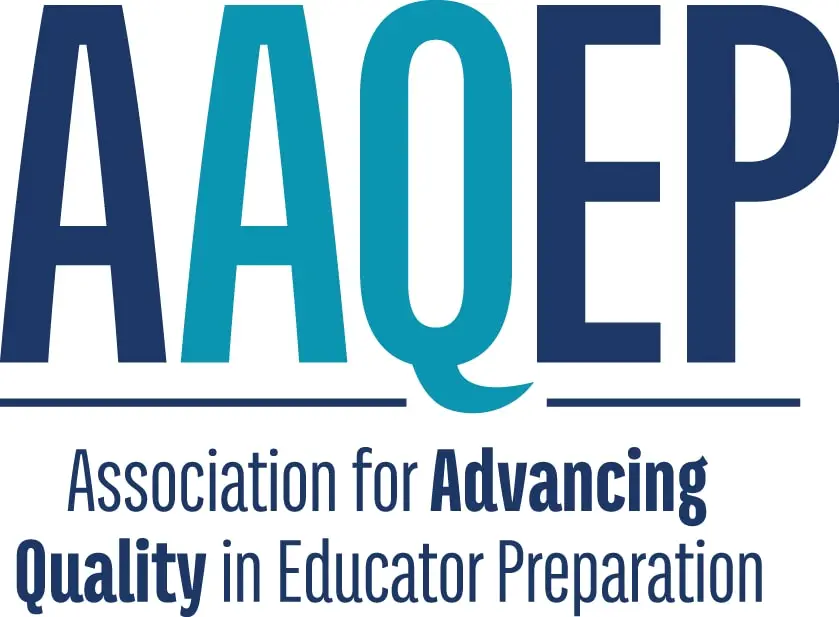
Master of Science in Applied Behavioral Analysis Degree
Online
Flexible options
Finish in 18 months
Average completion time
Monthly start dates
Year-round enrollment

Take the first step in your National University Journey

Learn to Support Behavior Change in Neurodiverse Populations
Degree:
MS in Applied Behavioral Analysis Degree
Application:
$0 application fee. No essays/exams.
National University’s Master of Science in Applied Behavioral Analysis program is designed for those who have a true passion for working with individuals on the Autism Spectrum and those with neurodiverse conditions that benefit from behavior change systems. The curriculum of the Master of Science in Applied Behavior Analysis program is designed to prepare students to sit for the Board Certified Behavior Analyst® (BCBA) examination. Currently, The Association for Behavior Analysis International (ABAI) has verified the following courses in the program as meeting the coursework requirements for eligibility to take the BCBA® or Board Certified Assistant Behavior Analyst® (BCaBA) examination. Please note that applicants must also meet additional eligibility requirements and demonstrate residency in an authorized country before they can be deemed eligible to take the examination.
ABA is a rewarding profession that makes an impact in clients’ lives. It’s a type of therapy focused on helping the patient to modify their behaviors. When successful, ABA can help the patient establish or improve a wide range of critical skills, including social skills, employment-related skills, communication skills, academic skills, and hygiene-related or self-care skills.
If you want to help people who have behavioral and social challenges, NU’s MS in Applied Behavioral Analysis can provide you with the skills you need to accomplish your goals.
Degree Requirements
To receive a Master of Science in Applied Behavior Analysis, students must complete at least 45 quarter units (the equivalent of 10 1-month courses) of graduate work.
National University awards credit in quarter units, with each academic year divided into four 12-week quarters.
Each quarter is made up of three 4-week classes, with one class per month. Under the current policy, 4.5 units of credit are awarded for courses.
- 45 quarter units must be completed at National University.
- A total of 4.5 quarter units of graduate credit may be granted for equivalent graduate work completed at another institution.
To effectively transfer units to this degree, the transferable units were not previously used in earning another advanced degree. In addition, the coursework was completed within the past 7 years. Course equivalence cannot be granted for life experience. Please refer to the graduate information section of the University catalog for admission and evaluation.
The following courses are specific degree requirements. Students may need to take additional general electives to satisfy the total units for the degree.
Transfer Credit
Students who complete the Master of Science in Applied Behavior Analysis program and enroll in the Doctor of Education or the Doctor of Philosophy in Education, with a specialization in Leadership in Curriculum and Teaching, Special Education, or General Education, the Doctor of Education or the Doctor of Philosophy in Educational and Organizational Leadership can transfer up to 6 semester credit hours toward the degree requirements. The following equivalences would be applied to satisfy these degree requirements.
General Education
- ABA634 Supervision and Management will transfer as EDL-9100 Leadership for Diversity, Equity, Inclusion, and Social Justice
- ABA626 Functional Behavioral Assessment will transfer as EDL-9400 PK-12 Curriculum, Instruction, and Assessment
Leadership in Curriculum and Teaching
- ABA620 Philosophical underpinning ABA will transfer for LCT-7100 Dispositions of Learner and Teacher
- ABA634 Supervision and Management will transfer as EDL-9100 Leadership for Diversity, Equity, Inclusion, and Social Justice
Special Education
- ABA624 Measurement and Design will transfer as SE-7200 Analyzing Data and Monitoring Student Progress
- ABA628 Behavioral Change Procedures will transfer as SE-7400 Implementing Programs for Students with Intellectual and Learning Disabilities
- ABA630 Developing ABA Interventions will transfer as SE-7500 Implementing Programs for Students with Emotional and Behavioral Disorders
Doctor of Education or Doctor of Philosophy in Educational and Organizational Leadership
- ABA634 Supervision and Management will transfer as EDL-9100 Leadership for Diversity, Equity, Inclusion, and Social Justice
- ABA626 Functional Behavioral Assessment will transfer as EDL-9400 PK-12 Curriculum, Instruction, and Assessment
Students must pass the courses with a B or better grade to receive transfer credit.
The following courses are specific degree requirements. Students may need to take additional general electives to satisfy the total units for the degree.
PRogram Requirements
9 Courses
Philosophical Underpinning ABA
4.5 Quarter Units
This course identifies the goals of behavioral analysis as a science, explains the philosophical assumptions underlying the science of behavior analysis, describes and explains behavior from the perspective of radical behaviorism and the dimensions of ABA, and distinguishes among the four branches of ABA.
Concepts and Principles of ABA
4.5 Quarter Units
Prerequisite: ABA 620
Defines the field’s fundamental elements: behavior and the environmental antecedent and consequential events that influence it; and introduces key terms and principles that describe relationships among these elements.
Measurement and Design
4.5 Quarter Units
Prerequisite: ABA 622
Role of measurement in behavior analysis, how to assess the social significance of potential target behaviors, how to interpret graphically displayed data, options for setting criteria for behavior change, state intervention goals in observable and measurable terms, identify potential interventions based on assessment results, and recommend interventions goals and strategies.
Functional Behavior Assessment
4.5 Quarter Units
Prerequisite: ABA 624
Describes an assessment process that explores the purpose a behavior serves for a person, how to conduct a functional analysis of problem behavior, interpret functional assessment data, and the role in treating and preventing problem behaviors.
Behavioral Change Procedures
4.5 Quarter Units
Prerequisite: ABA 626
Focuses on promoting improved significant social changes in an individual’s life and defines the major types of generalized behavior change and strategies and tactics applied behavior analysts use to achieve them.
Developing ABA Interventions
4.5 Quarter Units
Prerequisite: ABA 628
Describes how to state intervention goals in observable and measurable terms, identify potential interventions based on assessment results, and recommend interventions, strategies, and goals.
Ethics Compliance Code
4.5 Quarter Units
Prerequisite: ABA 630
Outlines standards of professional practice a code of conduct for behavior analyst, describes strategies and tactics for providing ethically sound client services, and how to achieve, maintain, and to maintain and extend professional competence.
Supervision and Management
4.5 Quarter Units
Prerequisite: ABA 632
This course introduces the fundamentals of Organizational Behavior Management (OBM), focusing on leadership and supervision skills essential for behavior analysts in applied settings. Students will explore organizational culture, performance management, and effective leadership, gaining practical skills to foster change, enhance staff performance, and supervise behavior analytic programs.
Application of ABA Skills
4.5 Quarter Units
Prerequisite: ABA 634
This course is designed to help students achieve fluency skills in applied behavioral skills.
Final Project for Major
1 Course
ABA Capstone Project
4.5 Quarter Units
Prerequisite: ABA 636
The course is designed to utilize within-subject design research strategies when conducting an applied behavior analytical experiment.
Career Outlook
Data Source: The career outcomes data presented is sourced from Lightcast, which provides insights based on real-time job postings, public datasets, and analytics. Lightcast derives its data from sources such as the Bureau of Labor Statistics (BLS), the Quarterly Census of Employment and Wages (QCEW), and the Occupational Employment Statistics (OES). While accurate and reliable, this data reflects general labor market trends and may not represent individual outcomes or specific local conditions. For more details on Lightcast’s methodology, visit their Data Overview.
Here are some careers this degree could prepare you for:
Please select the state you will work in to view job data in your area
- Top Jobs in this field
- Median Salary
- Job Openings
- Clinical and Counseling Psychologists
-
$98,742
avg. salary (USA) -
6,817
job openings (past yr.) past year
ALl of USAMost Desired Skills
- Psychology
- Clinical Psychology
- Mental Health
- Psychotherapy
- Treatment Planning
- Marketing
- Psychological Evaluations
ALl of USATop Companies Hiring
- LifeStance Health
- Thriveworks
- Headway
- Senior Care Therapy
- Optum
- Pwm
- UnitedHealth Group
Program Learning Outcomes
Learn the key skills to help you excel in your field of study.
- Understand key principles of behavior analysis, including terminology and foundational concepts.
- Apply behavior analytic techniques to design and implement effective interventions for behavior change.
- Develop behavior change programs that incorporate individualized strategies, data collection methods, and measurement systems.
- Assess the ethical considerations involved in behavior analysis practices, including client rights and professional conduct.
- Integrate knowledge and skill in the identification of the function of the behavior and the development of an intervention.
- Collaborate effectively with interdisciplinary teams, including educators, psychologists, and healthcare professionals, to achieve behavior change goals.

Admissions
Transfer Students Welcome
Enrolling in a university is a big decision. That’s why our dedicated admissions team is here to guide you through the admissions process and help you find the right program for you and your career goals.
To that end, we’ve simplified and streamlined our application process, so you can get enrolled in your program right away. Because we accept and review applications year round, you can begin class as soon as next month, depending on your program and location of choice.
Learn more about undergraduate, graduate, military, and international student admissions, plus admissions information for transfer students. You can also learn more about our tuition rates and financial aid opportunities.
To speak with our admissions team, call (855) 355-6288 or request information and an advisor will contact you shortly. If you’re ready to apply, simply start your application today.

Pricing
The cost shown is the estimated price for this degree. Many National University students are eligible for scholarships or financial aid, which may substantially lower a degree program’s cost.
You can visit our Tuition Estimator to see what scholarships and discounts are available and get more information about expected costs. You can also start the application process and receive counseling from our Enrollment team on the costs of your degree
Scholarships and Financial Aid
National University is dedicated to making higher education affordable, as well as accessible. Through NU scholarship offerings, eligible students are able to reduce the financial burden of college, start classes sooner, and finish their programs faster while focusing on achieving their goals.
Accreditations

The Western Association of Schools and Colleges (WASC) accredits public and private schools, colleges, and universities in the U.S.


Why National University?
We’re proud to be a Veteran-founded, San Diego-based nonprofit. Since 1971, our mission has been to provide accessible, achievable higher education to adult learners.
Today, we educate students from across the U.S. and around the globe, with over 245,000 alumni worldwide.

“NU offers flexible online courses, supportive professors and staff, and students who can guide you throughout your classes.”
Justine I.,
Class of 2022
What makes a degree
with National University unique?
Free Tutoring Sessions
Access personalized tutoring sessions at no cost — empowering your learning.
Online
Flexibility meets quality education with our online learning option.
24/7 Support
Get assistance anytime, anywhere with our round-the-clock support services.
Military Friendly
Committed to serving those who serve — diverse resources and support for veterans and family. Military and Veteran Admissions.
Mentoring Network
Individual student and alumni career guidance, professional development opportunities, and customized career support.
Transfer Students Welcome
NU makes it easy to get your degree, even if you started it with another university. Learn more about transferring to NU.
Accelerate Your Career With NU
At National University, you’re part of a family. As a student, you’ll have the support of staff, faculty members, students, and alumni who will be there with you every step of the way, cheering you on as you pursue your goals.
Our network of 245,000 alumni is a large global community that provides our graduates with the professional connections to get a leg up in your new career.

FAQs
You’ll work with faculty who are also experts in the field and have the opportunity to take advantage of their real-world insights. The program is highly individualized and focused on the student learning experience.
NU’s curriculum utilizes precision learning and a verified course sequence, which are unique to National University. Additionally, you’ll focus on practitioner self-care, social and emotional learning, and cultural competency. You’ll also complete a research-based capstone project, and upon completion of the program, we’ll help place you in an internship program.
Behavior analysts provide services to individuals, families, group homes, schools, mental health agencies, hospitals, industrial and business settings, and other agencies working with individuals who require intensive behavioral training and/or consultation.
A Master of Science in Applied Behavioral Analysis degree opens doors in a variety of industries, including health care, social assistance, and educational services. Employers in this field are looking for skills in teaching, research, communications, leadership, writing, advocacy, planning, and management.
In order to be eligible to sit for the BACB (Behavior Analyst Certification Board) exam, you must have a master’s degree with the verified course sequence (provided by NU) and have 2,000 supervision hours. Once you pass the exam, you are a Board-Certified Behavior Analyst (BCBA).
The career opportunities and rewards within the profession are plentiful. Some of the positions* NU’s ABA program can prepare you for include:
- Board Certified Behavior Analyst (BCBA)
- Licensed Behavior Analyst (LBA)
- Registered Behavior Technicians (RBT)
- Board Certified Assistant Behavior Analyst (BCaBA)
- Behavior Consultant
- Behavior Analyst
- Behavior Technician
- Behavior Specialist
- ABA Interventionist
- ABA Behavioral Technician
- Lead ABA Interventionist
- Behavior Lead
- Behavior Supervisor
- Behavior Intervention Specialist
- Behavior Engineers
- Organizational Behavior Management Specialist
* SOURCE: Emsi Labor Analyst- Report. Emsi research company homepage at https://www.economicmodeling.com/company/ (Report viewed: May, 2022). DISCLAIMER: The data provided is for informational purposes only. Emsi data and analysis utilizes government sources to provide insights on industries, demographics, employers, in-demand skills, and more to align academic programs with labor market opportunities. Cited projections may not reflect local or short-term economic or job conditions and do not guarantee actual job growth. Current and prospective students should use this data with other available economic data to inform their educational decisions.
A master’s degree in ABA provides students with advanced study in research-based theories and findings, arming them with the knowledge to implement the concepts and principles of behavior analysis so as to begin or advance in professional practice.
Aspiring behavior analysts need a master’s degree in special education, psychology, or a related field. Depending on the state in which they practice, professionals might also need to meet licensing requirements.
You can apply online via the BACB’s website. The application asks that you show proof of your degree, coursework, and supervised experience; you’ll also have to pay an application fee. Once the Behavior Analyst Certification Board sees that you’ve met these requirements, they will approve your application to be eligible to sit for the BCBA examination.
In order to obtain the Behavior Analysts Certification ABA certificate, a person has to complete the required coursework. Most certifications require 270 hours of coursework at an accredited institution if the person holds a master’s degree.
Additional Resources
Program Disclosure
Successful completion and attainment of National University degrees do not lead to automatic or immediate licensure, employment, or certification in any state/country. The University cannot guarantee that any professional organization or business will accept a graduate’s application to sit for any certification, licensure, or related exam for the purpose of professional certification.
Program availability varies by state. Many disciplines, professions, and jobs require disclosure of an individual’s criminal history, and a variety of states require background checks to apply to, or be eligible for, certain certificates, registrations, and licenses. Existence of a criminal history may also subject an individual to denial of an initial application for a certificate, registration, or license and/or result in the revocation or suspension of an existing certificate, registration, or license. Requirements can vary by state, occupation, and/or licensing authority.
NU graduates will be subject to additional requirements on a program, certification/licensure, employment, and state-by-state basis that can include one or more of the following items: internships, practicum experience, additional coursework, exams, tests, drug testing, earning an additional degree, and/or other training/education requirements.
All prospective students are advised to review employment, certification, and/or licensure requirements in their state, and to contact the certification/licensing body of the state and/or country where they intend to obtain certification/licensure to verify that these courses/programs qualify in that state/country, prior to enrolling. Prospective students are also advised to regularly review the state’s/country’s policies and procedures relating to certification/licensure, as those policies are subject to change.
National University degrees do not guarantee employment or salary of any kind. Prospective students are strongly encouraged to review desired job positions to review degrees, education, and/or training required to apply for desired positions. Prospective students should monitor these positions as requirements, salary, and other relevant factors can change over time.
Back to top